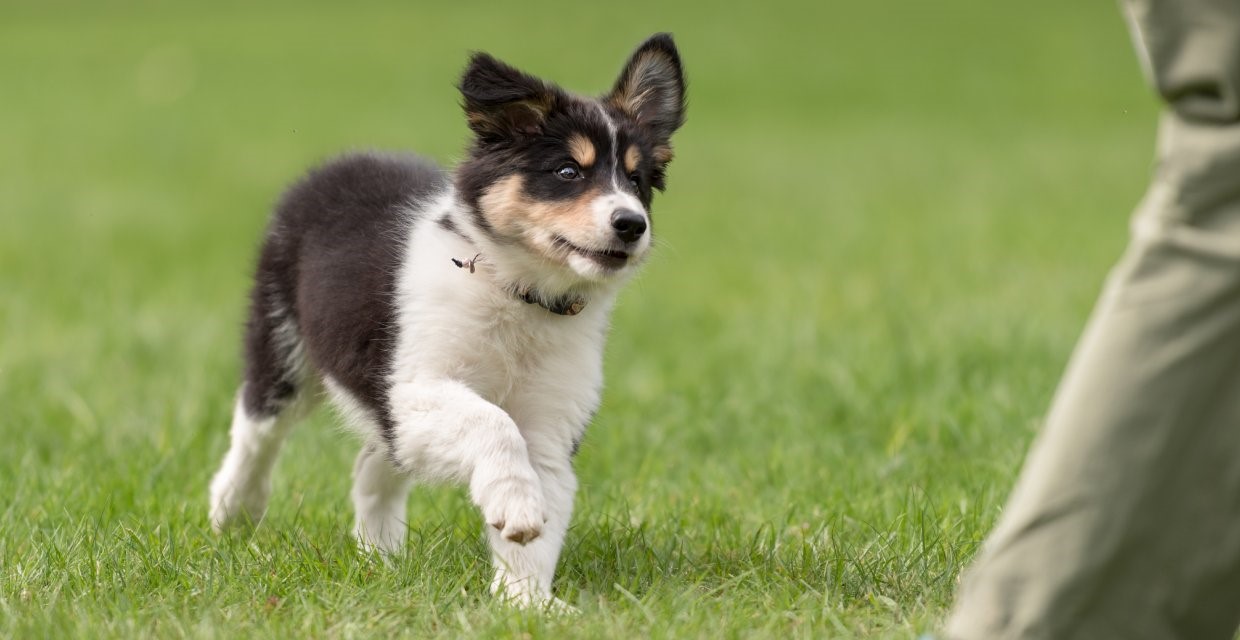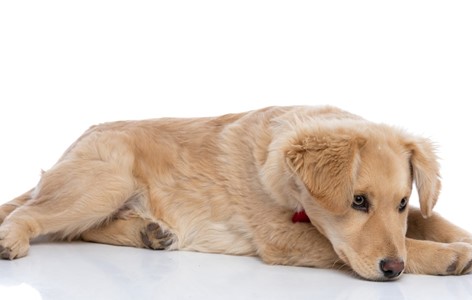Between the ages of 3 and 6 months puppies continue to learn about their world and develop mentally at an impressive rate. Let’s take a look at the behavioural milestones puppies reach between 3 and 6 months.
Behavioural Milestones between 3-6 months
Puppies continue to learn about the world around them as well as the consequences of their behaviour during this stage of development. They are better able to understand basic obedience, especially if you work on rewarding them for behaviours you like and teach them basics obedience such as sit, drop and stay and also where to go to the toilet.
If you aren’t already taking your puppy to puppy classes, now is a good time to do so.
The Socialisation Period continues to around 12 to 16 weeks of age and puppy classes provide important opportunities for socialisation to different people, other dogs, the vet clinic environment, car travel and handling in a positive way.
These early experiences are important so your puppy doesn’t fear these things later on.
Between around 16 weeks and 6 months of age puppies go through a fear stage which is a normal part of their development. You may notice an increased fear response to like loud noises, sudden movement or crowds. Keep an extra eye on your puppy at these times and gently remove them from any situations causing fear.
Pairing the ‘scary’ things with yummy treats and praise and reassuring your puppy can help to alleviate their fear.
How to Continue a Loving Relationship with your Puppy
One of the most important things you can do to ensure you continue a loving relationship with your puppy is to provide ongoing positive socialisation experiences, even after puppy school. Gradually exposing your puppy to different people, other friendly dogs, new environments and situations, in a positive way, will help your puppy understand these things are normal and part of everyday life.
Puppies that miss out on lots of positive socialisation or have traumatic experiences during this phase can develop fear and sometimes aggression in response to these things. If this happens, seek professional advice for help.
Training your puppy using positive reinforcement is another way to ensure you continue to share a loving relationship.
Research has proven that positive reinforcement is the most effective and humane method to teach dogs desired behaviour.
It also helps to strengthen your relationship through shared positive experiences together.
By consistently rewarding desired behaviour with treats, food and praise and ignoring behaviour you don’t like, your puppy will learn that good behaviour pays off and will be more likely to repeat it.
Teaching your puppy how to cope with separation and being home alone is another important skill to teach your puppy and will help avoid separation anxiety.
























